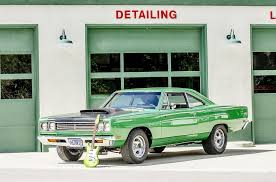Insurance Blog
Controlling Car Insurance
Are small businesses in Kentucky required to carry Workers compensation insurance?
Federally protected employeesCertain Religious sectsIndividual business owners, certain partners, and LLC members.
Insuring Adult Children
All rights reserved. Production or distribution, whether in whole or in part, in any form of media or language; and no matter what country, state or territory, is expressly forbidden without written consent of Insurance Publishing Plus, Inc.
Virginia Graeme Baker Pool & Safety Act
Standards must met the requirements of ASME/ANSI or ASTM
Operated by or for the Federal Government for the benefit of the Armed Forces and their dependents
TruePoint Insurance Group, LLC
1000 Pine Barren Rd
Pooler, GA 31322
(912) 330-1265
TruePoint Insurance Group, LLC is not licensed to practice law, nor can it provide legal counsel. This summary is not intended as a legal opinion. We cannot warrant that the opinions and representations provided in this summary are accurate. TruePoint Insurance Group, LLC has provided this summary of the Virginia Graeme Baker Act for your awareness. The summary may or may not identify your requirements as a pool or spa owner. If you own a pool or spa you are advised by TruePoint Insurance Group, LLC to refer your specific situation to legal counsel.
Barbers and Beauticians Professional Liability
Garage Liability Coverage
Â
Garage Liability Insurance
The coverage, it’s in the detailing
Â
Liability insurance cost; the cost of staying in business
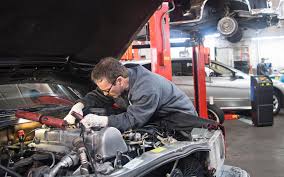 insurance needs. Mechanics, auto body repair shops, and other’s need what is known as Garage Liability Insurance.
insurance needs. Mechanics, auto body repair shops, and other’s need what is known as Garage Liability Insurance.Garage Liability is often confused with Garagekeepers and vice versa
Earlier we noted that Garage Liability covered on-site incidents. Does your business take customer vehicles on test drives? Do you drive customer vehicles to other locations? How about pick-up and delivery of customer vehicles? If your businesses drive customer vehicle off premises, you need a Garagekeepers policy. For more information on Garagekeepers Coverage forms see:
Â
Garagekeepers or Garage Liability, as clear as spent motor oil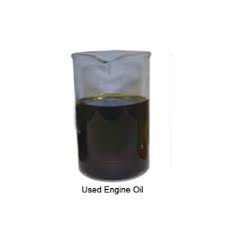
Business Liability insurance can get confusing. That’s why it is important for business owners to do some work on their end. It’s wise to invest some time on the front-end finding a good agent. Working with an independent agent increases your chance of success.
Garage Liability……working at your garage
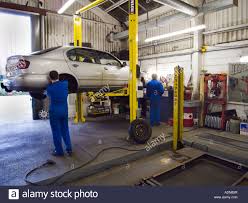 Garage liability covers your customer vehicles. This coverage will not cover you if the vehicle leaves your place of business. Damage that occurs offsite will not be covered. Drive, tow or levitate the car to another location. It doesn’t matter, damages will not be covered. It is not uncommon to see Garage Liability policies with Garagekeepers.
Garage liability covers your customer vehicles. This coverage will not cover you if the vehicle leaves your place of business. Damage that occurs offsite will not be covered. Drive, tow or levitate the car to another location. It doesn’t matter, damages will not be covered. It is not uncommon to see Garage Liability policies with Garagekeepers. Garagekeepers……keep the Garage Liability, you will likely need it too
Â
Who needs Garagekeepers? And who needs both…
CAN YOU HAVE BOTH?
Cheap Car insurance start by reducing Accident Risk

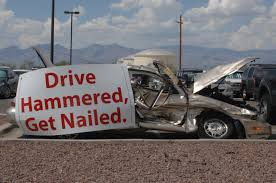 the influence is an extraordinarily bad decision. Nearly 15,000 died in 2012 in crashes involving impaired drivers, according to the National Safety Council (NSC). So get a designated driver — or better yet, be a designated driver. Best of all, have the party at your house and let everyone sleep over.
the influence is an extraordinarily bad decision. Nearly 15,000 died in 2012 in crashes involving impaired drivers, according to the National Safety Council (NSC). So get a designated driver — or better yet, be a designated driver. Best of all, have the party at your house and let everyone sleep over. 3. Slow down. They say “speed kills,” and, as depressing as it sounds, it’s true. Crashes caused by excessive speed cause more than 10,000 deaths a year on average, the NSC says. Surprisingly, you are most at risk on roads where the speed limit is 55 mph or below. Remember, the posted speed limit isn’t always the best speed to travel. Depending on conditions, going slower might be the safest option.
3. Slow down. They say “speed kills,” and, as depressing as it sounds, it’s true. Crashes caused by excessive speed cause more than 10,000 deaths a year on average, the NSC says. Surprisingly, you are most at risk on roads where the speed limit is 55 mph or below. Remember, the posted speed limit isn’t always the best speed to travel. Depending on conditions, going slower might be the safest option.2014 TruePoint Community Service Award
Back to School Safety Reminders | TruePoint Insurance in KY
]]>
Tips for Back-to-School Time | TruePoint Insurance in KY

 Contact
Contact
 Email an Agent
Email an Agent

 Click to Call
Click to Call Get Directions
Get Directions